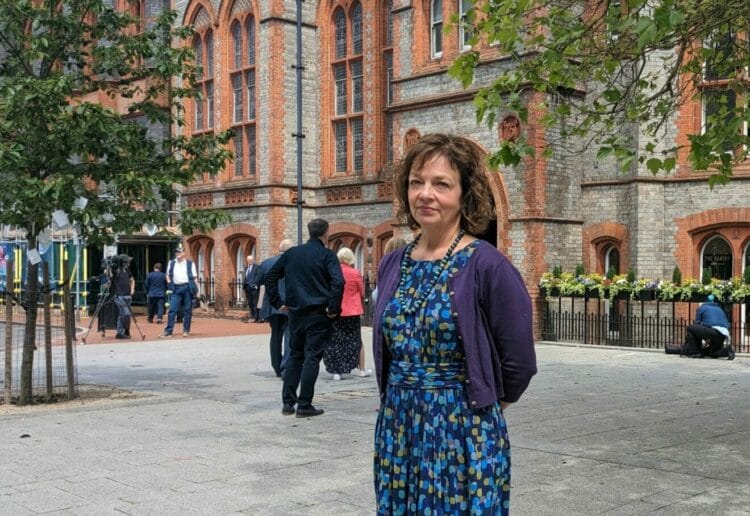ON WEDNESDAY, Reading Borough Council laid down new proposals it will seek to implement following the conclusion of the inquest into the death of Ruth Perry.
While the council has announced a number of measures it will be putting forward as a response to the inquest, which examined the circumstances surrounding the death of Ms Perry, there are calls for authorities across the country to go further.
She was head teacher at Caversham Primary School, but took her own life just days before the school was due to be downgraded following an Ofsted inspection back in January last year.
At the conclusion of the inquest, the coroner invoked the Sutovic case, which explained that it is the function of an inquest to “seek out and record as many of the facts concerning the death as the public interest requires and to establish the ‘substantial truth.'”
It established that there was an “abundantly clear” effect on Ms Perry as a result of the inspection itself, contributing “more than minimally” to the deterioration of her mental health, and subsequently her death.
The coroner concluded that there was a “clear perception of a power imbalance” between Ofsted and the school, the local authority, and the board of governors.
They also concluded there was “no clear mechanism” for challenging Ofsted, further compounded by the fact that the link inspector and lead inspector on the case were the same person.
Turning its attention to the council, the coroner’s concluding statement also posits that RBC was critical of Ofsted’s decision as unfair, and that the council was aware of Ms Perry being unable to raise her concerns.
The council did not elect to make a comment on the Ofsted report, despite asking for the opportunity to do so.
Following the inquest, the coroner included the council in their Regulation 28 report, laying out a number of concerns about shortcomings in its written policies.
These included concerns that the council’s “robust” approach to dealing with Ofsted was not borne out in its written policy.
It also noted that there was not an internal review of any kind.
Julia Waters, Ms Perry’s sister, said in a statement following the proposals: “Our family welcomes the announcement that Reading Borough Council have commissioned an independent learning review into the support they offered before, during and after the Ofsted school inspection which contributed to Ruth’s death.
“We hope that the review will be rigorous and the resulting recommendations useful and far-reaching enough, to ensure a tragedy like Ruth’s cannot happen again.
“We wish the reviewers well.”
It continues: “Otherwise, we do not feel that Reading’s Borough Council’s response sufficiently recognises the gravity of the concerns identified by the Coroner.
“We do not feel the Council has yet put forward a convincing set of actions to address the Coroner’s concerns.”
Ms Waters explained: “We are genuinely shocked to learn that the Council is only now proposing to bring in many of the policies and actions that most people would expect from a responsible employer.
“It shows that the Council has not been providing the kind of practical or psychological support that headteachers say they need.
“It is good to know that the Council recognises the importance of building an environment where its headteachers feel supported through Ofsted inspections, as well as in facing the other challenges that come with leading a school.”
It continues: “As of yet, Reading Borough Council’s response is not much more than a list of good intentions.
“The Council needs to do more to show headteachers that it truly ‘has their backs’ and needs to commit to listen more openly to school leaders, to respond to the many concerns that still exist.
“At the root of the problem is an imbalance of power in education, not just in Reading but across the English state school system–as the inquest into Ruth’s death showed, headteachers feel they face an unfair share of the burden and the blame when they encounter problems, often without having sufficient backing from their employer.
It concludes: “Reading Borough Council, and all education authorities in England, need to address this imbalance of power and more fairly share responsibility, if they want to restore the trust of headteachers and the confidence of parents.”
























